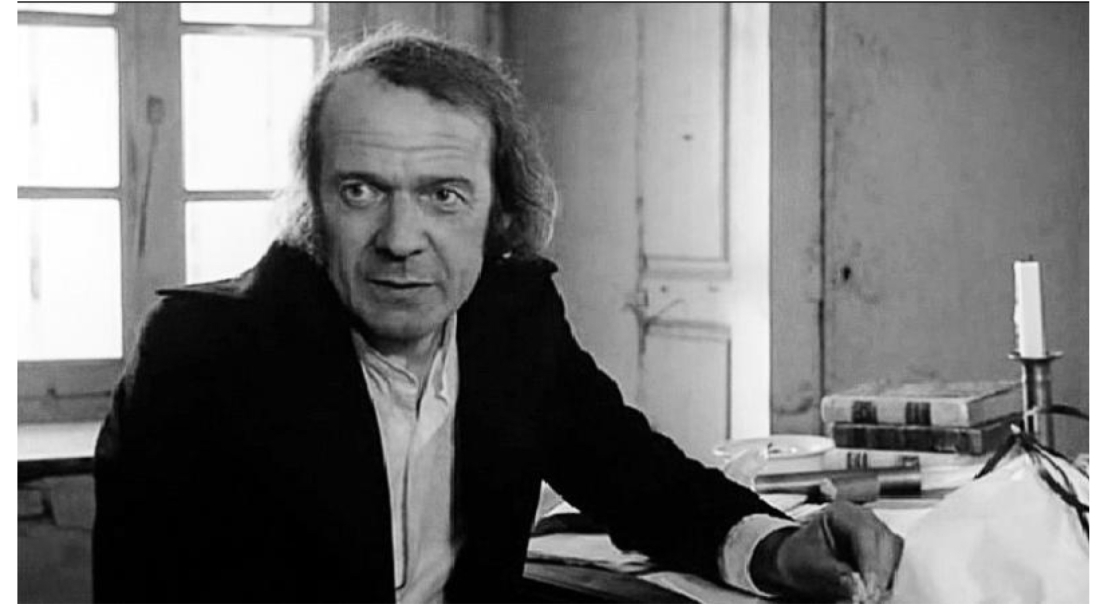We present you an excerpt from French television program called “L’Abécédaire de Gilles Deleuze” (“Gilles Deleuze’s alphabet book”), produced by Pierre-André Boutang in 1988–1989, consisting of an eight-hour series of interviews between Gilles Deleuze and Claire Parnet. In one of the interviews the French philosopher talks about Artsakh events and the rights of Armenians for life.
“Take, the example of recent contemporary unrest in Armenia. What is the situation there to the best of my understanding?
There is an enclave in another Soviet Republic. There is an Armenian enclave, and there is the Republic of Armenia…There is a massacre committed by a Turkish group — the Azeris. We don’t really know, but I suppose so. But here again, Armenians are massacred in their own enclave. So I’m guessing that the Armenians retreat into their republic — and then, there is an earthquake. It’s like something written by Marquis de Sade! These poor people suffer through horrible ordeals inflicted by men, and when they reach a shelter, nature strikes a blow! And people speak of human rights! That’s talk for intellectuals. For odious intellectuals, for intellectuals who have no ideas.
I’ve always remarked that these declarations are never made with the people who are directly concerned — Armenian Associations, Armenian communities, etc. Human rights is not their problem. What is their problem then? This is what I call an arrangement. When I said that desire arises through arrangements, this is a prime example: what can be done to suppress this enclave or to ensure its survival? What is the enclave within this framework? It’s a matter of territory, not of human rights, it’s about organizing territory. How… how will Gorbatchev react to this situation? What will he do to ensure that this Armenian enclave is not sacrificed to the menacing Turks that surround it? I would say that this is not a matter of human rights. It’s not a matter of justice. It’s a matter of jurisprudence. All abominations that humans endure are cases, not elements of abstract rights. They are abominable cases. One can say that these cases resemble one another, but they are all situations o jurisprudence.
This Armenian trouble is a typical example of an extraordinary problem. What can be done to save the Armenians, to help them cope with the unthinkable situation they find themselves in?
On top of it all, an earthquake occurs — an earthquake! That brings into the picture all the buildings that were not constructed as they should have been. These are all matters of jurisprudence.
To fight for freedom, becoming revolutionary is to practice jurisprudence, within a system of justice. Justice does not exist, human rights do not exist. What counts is jurisprudence, that is what the invention of law is. Those who are satisfied and referring to and listing human rights are simply morons. It has nothing to do with enforcing human rights, but with inventing forms of jurisprudence, so that for each case it could never come up again. That’s very different…
That’s what life is, there are no human rights, only rights of life, and life unfolds case by case… It’s not a matter of rights of this or of that, it is a matter of situations, of evolving situations. And fighting for freedom is to engage in jurisprudence.
The example of Armenia is a typical one. Human rights as you refer to them, what does that mean? Turks don’t have the rights to massacre Armenians. Fine. And then? How far does that really get us? Only the feeble-minded or hypocrites champion this discourse about human rights, philosophically it is meaningless. It is the creation of law, not the declaration of human rights. The creation of law is jurisprudence, and only that exists, and so one must fight for jurisprudence.
That is what being on the left means: creating the law…”
